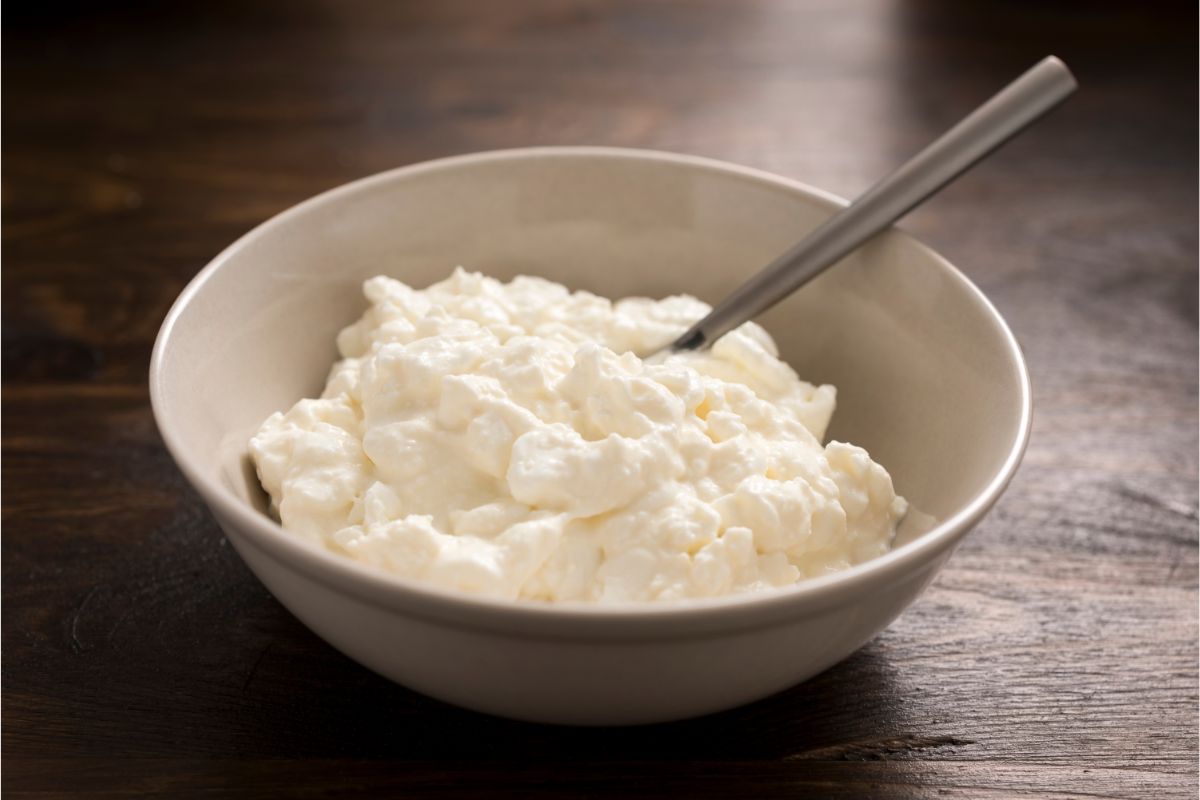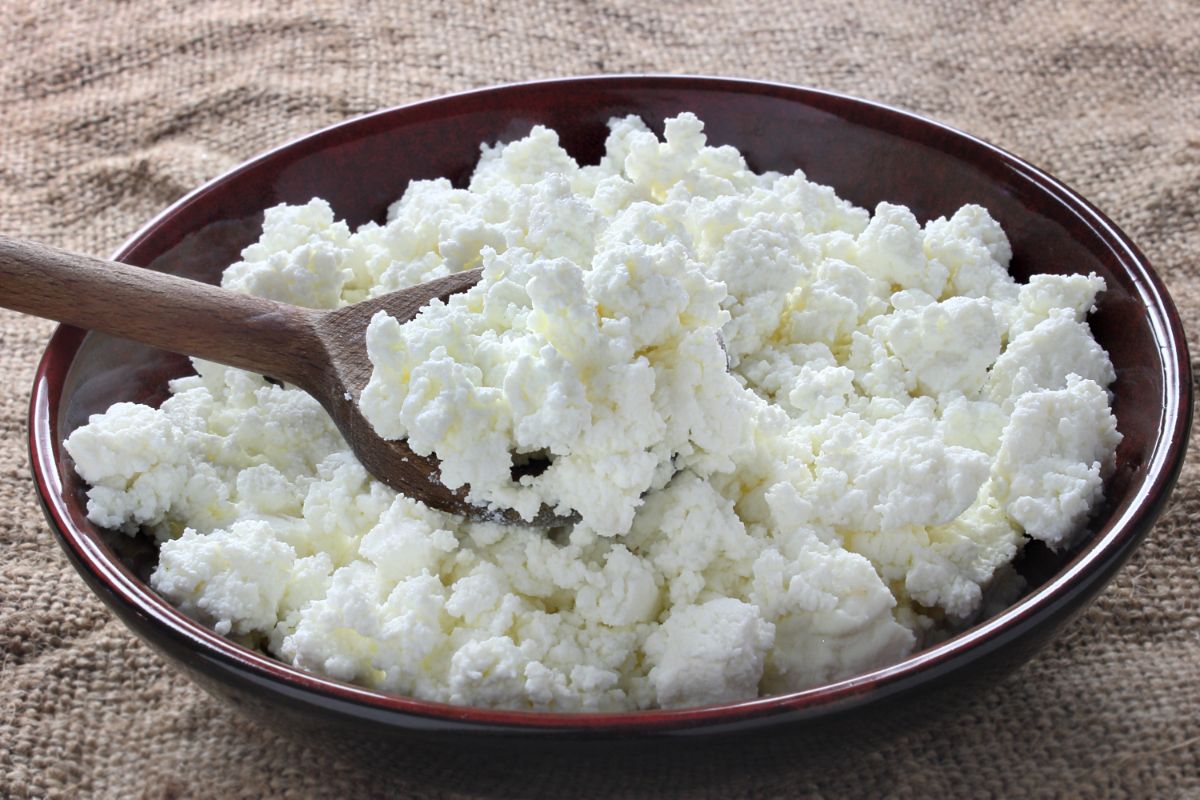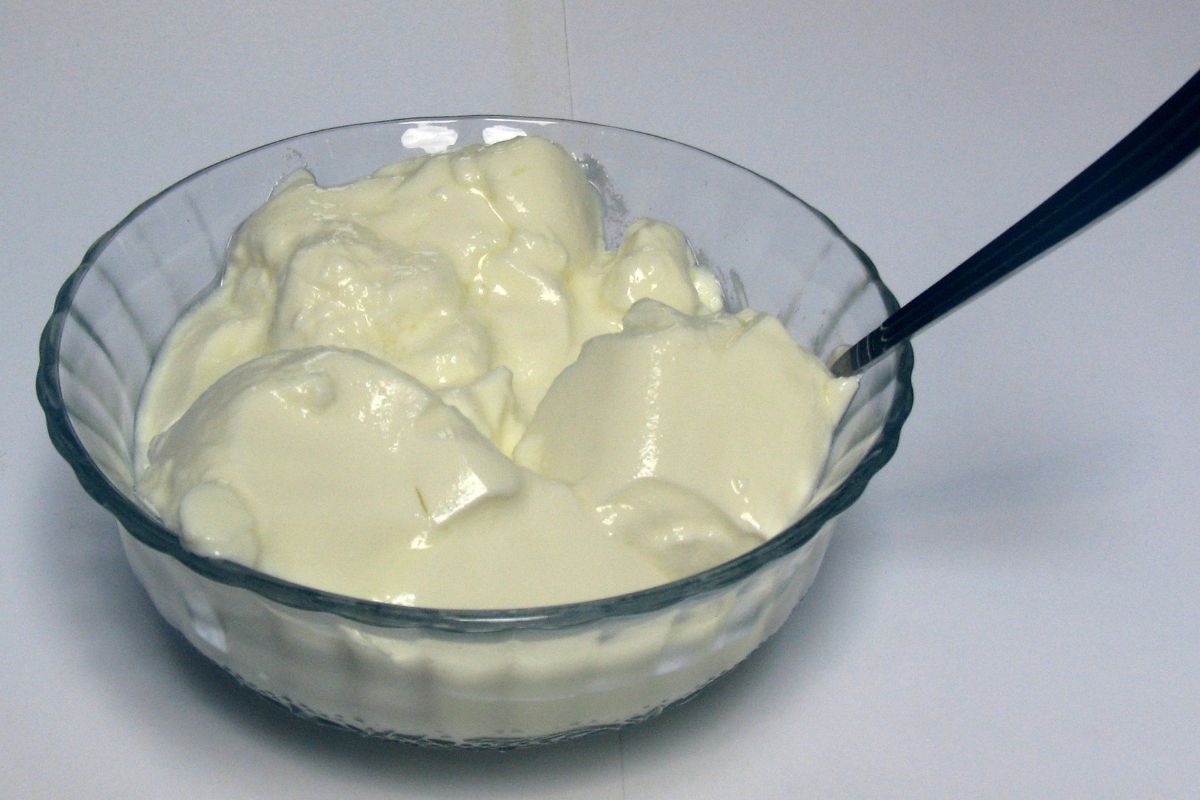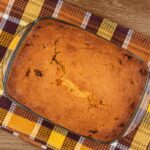What does cottage cheese taste like? If you’ve ever found yourself pondering this curd-filled conundrum, you’re not alone.
Cottage cheese, that delightful dairy creation, has intrigued taste buds for ages. In this article, we delve into the world of cottage cheese, unraveling its taste secrets and exploring its unique characteristics.

As self-appointed cheese enthusiasts, we bring you the lowdown on the texture, flavor, and versatility of this creamy delight. So, grab a spoon, get ready to delve into the curds and whey, and join us on this cottage cheese expedition to uncover the true essence of this dairy product!
An Introduction To Cottage Cheese
When it comes to understanding cottage cheese, let’s start with the basics. What exactly is this dairy marvel?
Cottage cheese is a fresh cheese made from the curds of cow’s milk. It undergoes a simple process where milk is curdled, typically using an acidic substance like lemon juice or vinegar.
The result? A creamy, lumpy texture that sets cottage cheese apart from its cheese counterparts.
Cottage Cheese Composition
Now, let’s talk about its composition.
Cottage cheese is rich in protein and low in fat, making it a popular choice for health-conscious individuals. It contains a combination of curds (the solid chunks) and whey (the liquid portion), giving it a unique texture and mouthfeel.
Not only is cottage cheese nutrient-dense, but it’s also incredibly versatile in the culinary world. Its mild flavor acts as a blank canvas, allowing it to adapt to various recipes and flavor profiles.
So, whether you’re looking to whip up a savory salad or a sweet breakfast delight, cottage cheese can play a starring role.
The Flavor Profile Of Cottage Cheese
So, what does cottage cheese taste like?
While it may not boast the boldness of some aged cheeses, cottage cheese has its own unique charm that keeps taste buds intrigued.
At its core, cottage cheese is known for its mildness. It has a delicate, subtle flavor that serves as a canvas for other ingredients and flavors to shine.
This mildness makes cottage cheese incredibly versatile, allowing it to adapt to both sweet and savory dishes.
In some varieties, you may notice a gentle tanginess or slight acidity. This characteristic is more pronounced in cottage cheeses made with cultures or added acids during the curdling process and adds a pleasant zing to the overall taste, giving it a refreshing quality.
Compared to stronger, aged cheeses, cottage cheese possesses a lighter flavor. It lacks the intense saltiness or sharpness that can sometimes be overwhelming.
This mildness makes it an ideal choice for those who prefer a subtler taste or who want to balance out more robust ingredients in a dish.
When it comes to comparing cottage cheese to other cheeses, it stands in a category of its own.
Unlike cheeses with complex flavor profiles that develop over time, cottage cheese’s flavor is fresh and straightforward.
Moreover, it lacks the earthy or pungent notes found in aged varieties, making it a lighter option for those seeking a more delicate taste experience.
The Texture And Consistency Of Cottage Cheese
This is where things get even more interesting.
Picture this: delicate curds nestled in a creamy sea of whey. It’s a delightful juxtaposition that makes cottage cheese stand out in the cheese kingdom.
The curds in cottage cheese are soft, yet slightly grainy, giving them a pleasant mouthfeel. They’re not as dense or compact as the curds in other cheeses like cheddar or Swiss.
Instead, they maintain a delicate, airy quality that melts in your mouth. As you savor each spoonful, you’ll experience a slight resistance from the curds, adding a playful touch to your palate.
Now, let’s talk about the whey, the liquid component surrounding the curds, and which contributes to the creaminess of cottage cheese.
Depending on the variety, the whey can be more or less present, affecting the overall texture. Some cottage cheeses have a higher whey content, making them creamier and looser, while others have less whey, resulting in a firmer texture.

How Is Cottage Cheese Compared To Other Dairy Peoducts?
Comparing cottage cheese to other dairy products, it falls somewhere between yogurt and traditional cheese as it shares some similarities with yogurt in terms of its lumpy texture but lacks the smoothness of yogurt.
On the cheese spectrum, cottage cheese leans towards the fresher end, with a lighter and more delicate consistency compared to aged cheeses.
So, whether you prefer a fluffier cottage cheese with more whey or a denser variety with fewer curds, the texture of cottage cheese offers a delightful experience for your taste buds.
Nutritional Profile Of Cottage Cheese
In terms of nutrition, cottage cheese packs quite a punch.
It’s a fantastic source of calcium, phosphorus, and B-vitamins, promoting strong bones and a healthy metabolism. Plus, the high protein content makes it an excellent option for muscle repair and growth.
In fact, protein takes center stage in cottage cheese, making it a favorite among fitness enthusiasts and those seeking to increase their protein intake, with 12 to 15 grams of protein per half-cup serving!
Moreover, it is relatively low in calories, making it an excellent choice for those watching their waistlines. A half-cup serving of low-fat cottage cheese typically contains around 80 to 100 calories, depending on the brand and variety.
So, Is Cottage Cheese A Good Cheese Option?
The bottom line, my fellow flavor explorers, is that cottage cheese is a fascinating dairy delight with a taste that’s as diverse as our individual palates.
Its mildness, subtle tanginess, and creamy texture make it a versatile ingredient that can be a star player in both savory and sweet dishes.
Whether you savor it straight from the spoon, blend it into smoothies, or whip it into fluffy pancakes, cottage cheese offers a world of culinary possibilities.
But here’s the secret ingredient: Taste is subjective, and what may be a flavor symphony to one person’s taste buds might be a muted whisper to another’s.
So, don’t be afraid to embark on your own cottage cheese adventure, experimenting with different varieties, flavors, and culinary combinations.
The Bottom Line
So, next time someone asks you what cottage cheese tastes like, you can confidently say it’s a delightful dance of creaminess, subtle tang, and endless possibilities. Embrace the curds, savor the whey, and let your taste buds rejoice in the wonder that is cottage cheese!
- How To Reheat A Cheesesteak - November 5, 2023
- What Are Three Must Have Kitchen Knives? - September 22, 2023
- How To Protect Edges Of Pie Crust - June 15, 2023








